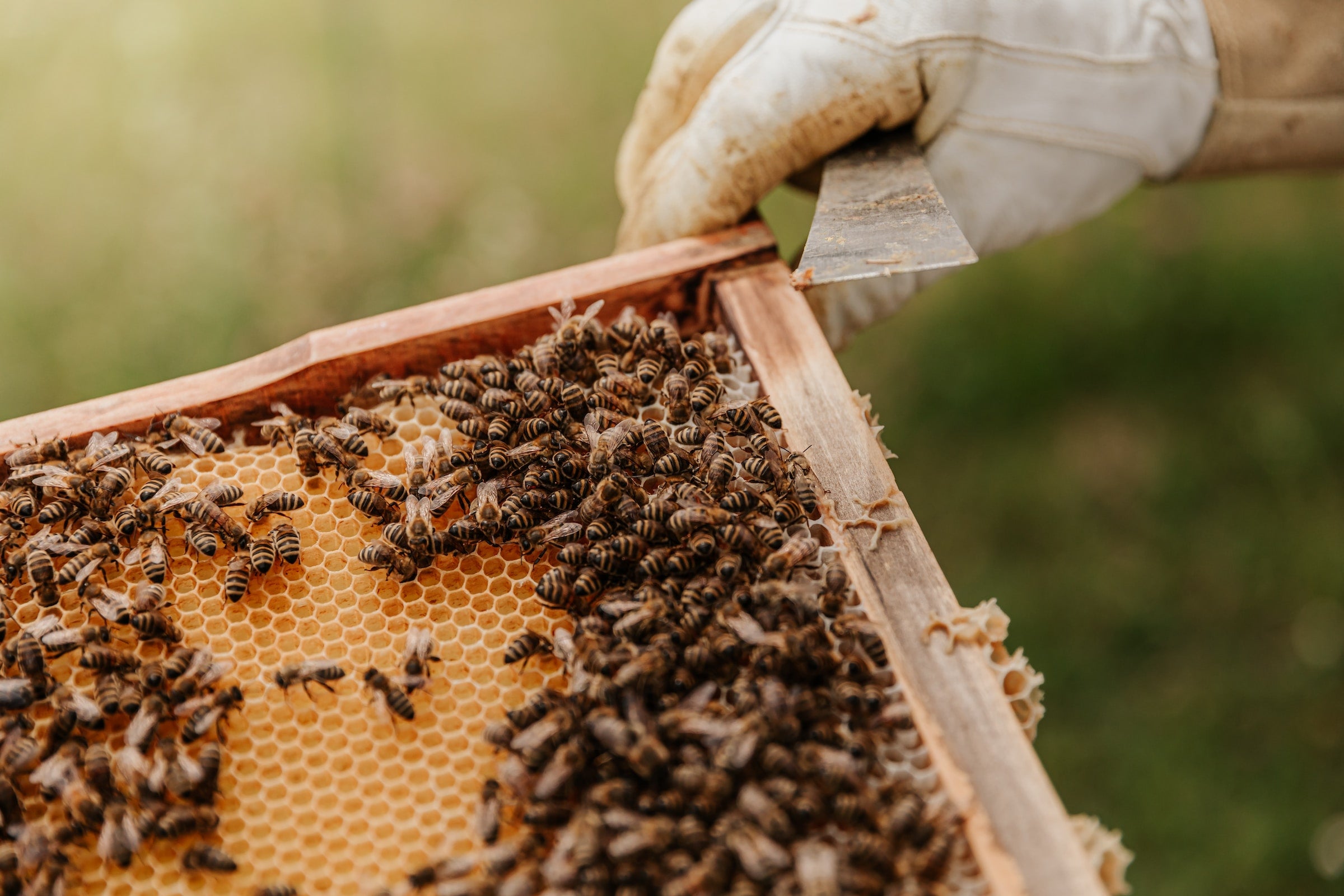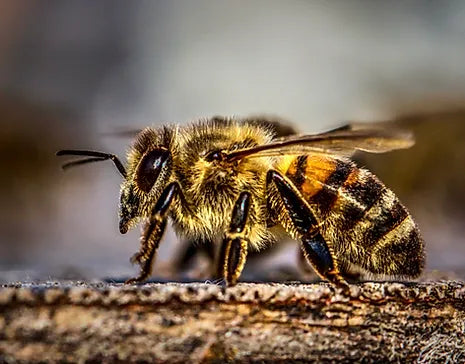
Bee Conservation

When bees go off to collect pollen to bring back to their hives, they disturb the pollen stores on the plant. In doing this they move some of the pollen from the male parts of a plant to the female parts, this process is called pollination and is needed for plants to grow their seeds or fruit. The fruit and vegetables we eat are pollinated by bees, so it is very important that we protect them!
Honeybees tend to be seen out and about between March and September, but numbers of bees in the UK have been declining and 35 different species are now under threat of extinction. Although bees are so important to our ecosystem, the huge reduction in wildflower meadows over the past century and increased use of pesticides are damaging the bee population.

Most wild honeybee colonies in the UK have died out, which means that bee farmers are more important than ever for ensuring bees stick around in the UK. Without bees we would mainly have wind pollinated plants such as grasses and trees and we wouldn’t have anywhere near the amount of flowers, fruit-bearing plants or vegetables that we enjoy today.
How can we help save the bees? Adding plants to your garden is a great way to give bees a balanced diet of nectar and pollen. It’s important to research the sort of plants that are best for bees before planting though. For example, bees love herbs, lavender and daisies, but a lot of typical bedding plants don’t give bees what they need. Some people convert areas of their garden lawn into wildflower patches, which honeybees love and you don’t have to mow! Avoiding the use of pesticides in your garden helps protect the dwindling bee population too. However, the sweetest way to help support your local bees is by eating local honey!
